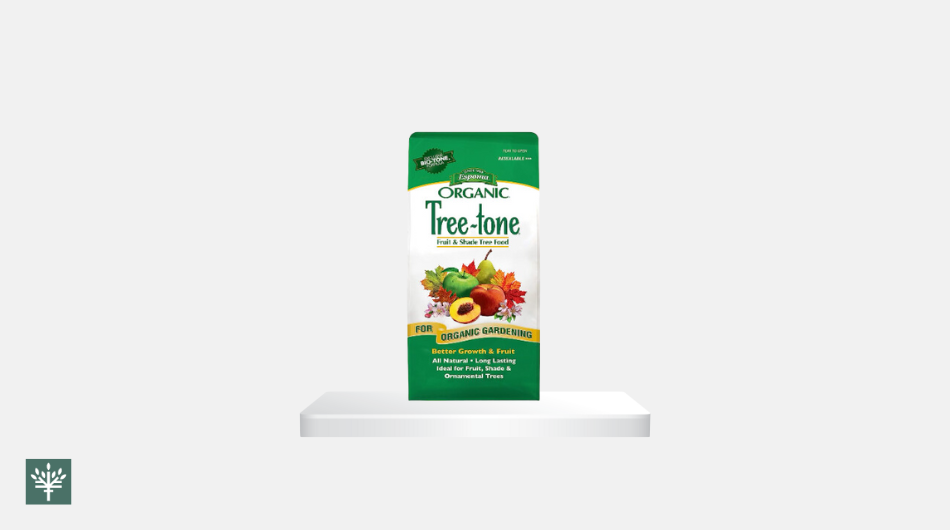Best Fertilizers for Apple Trees
by Carl Anderson
Updated on Aug 6, 2023
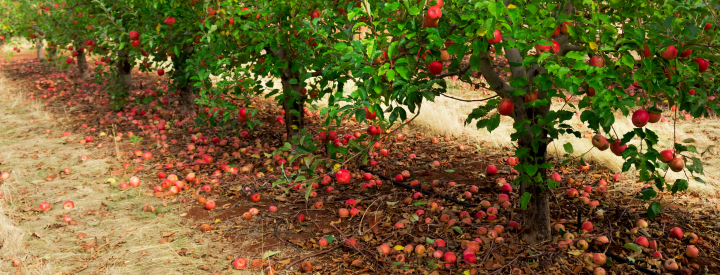
Apple trees are a favorite for most backyard gardeners.
But for you backyard growers to get the delicious and ripe apples you are looking for, you need to make sure you are getting your trees the nutrients they need.
In fact, fertilizing apple trees is surprisingly simple. But what's the best fertilizer for apple trees?
Our favorite is Jobe's Organic Fruit & Nut Tree Fertilizer for apple trees.
It's a simple and effective granular formula you apply directly around the tree to get what you need to promote root development, lush green foliage and of course, bountiful apples.
But don't worry. We investigated every fertilizer on the market and covered all the bases from liquid to spikes to granular. Keep reading to learn all about the best fertilizers for apple trees in 2023.
Our Best Fertilizers for Apple Trees
- Best Overall - Jobe's Fruit & Nut Granular Fertilizer
- Best Spikes - Jobe's 8-11-11 Fruit & Citrus Fertilizer Spikes
- Best For Secondary Nutrients - Humboldt Secret Gold Tree For Plants & Trees
- Best Liquid - Urban Farm Fertilizers Apples & Oranges
- Best Organic - Epsoma Organic Tree-Tone 6-3-2 Natural & Organic Plant Food
Jobe's Organic Fruit & Nut - Organic & fast acting. What more could you need? Check it out here.
Table of Contents
- The Top 5 Best Apple Tree Fertilizers - Full Analysis (Updated for 2023)
- Best Overall
- Best Spikes
- Best For Secondary Nutrients
- Best Liquid
- Best Organic
- Sweet New Earth's Top Pick
- How We Chose The Best Fertilizer
- NPK Ratio & Other Nutrients
- Application Method
- Organic vs. Inorganic
- Quality & Volume
- Soil Testing & pH Levels
- When To Use Fertilizer
- FAQs
The Top 5 Best Fertilizers for Apple Trees: Our Full Analysis (Updated for 2023)
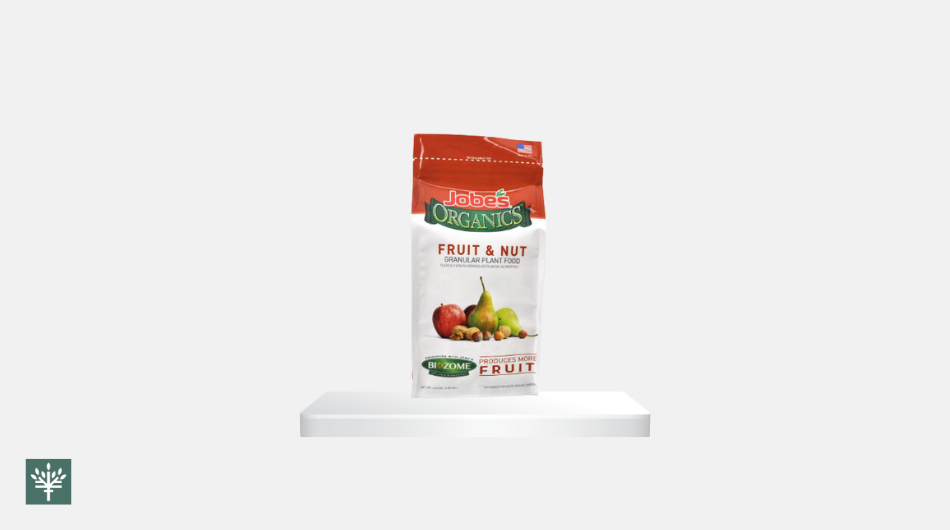
Product Specifications:
Type: Granular
Weight/Volume: 4-pound container
NPK Ratio: 3-5-5
In our opinion, the best fertilizer for apple trees is the Jobe's Organic Fruit & Nut Fertilizer.
It comes with an NPK Ratio of 3-5-5 which is great for root development, boosting the tree's health and giving the tree the resistance it needs to extreme climates.
This is the fertilizer you want if you are looking to boost your apple fruit production.
This fertilizer is a cost-effective granular fertilizer where all you need to do is spread it around the base of the apple tree.
It's completely organic, which makes sense why the ingredients are things like bone meal, and has a proprietary blend of microorganisms that work to break down complex materials and minerals to improve your long-term soil quality.
PROS
- Budget-friendly
- Organic fertilizer
- Promotes fruit production
CONS
- Requires every two to three weeks
- Requires raking into the soil
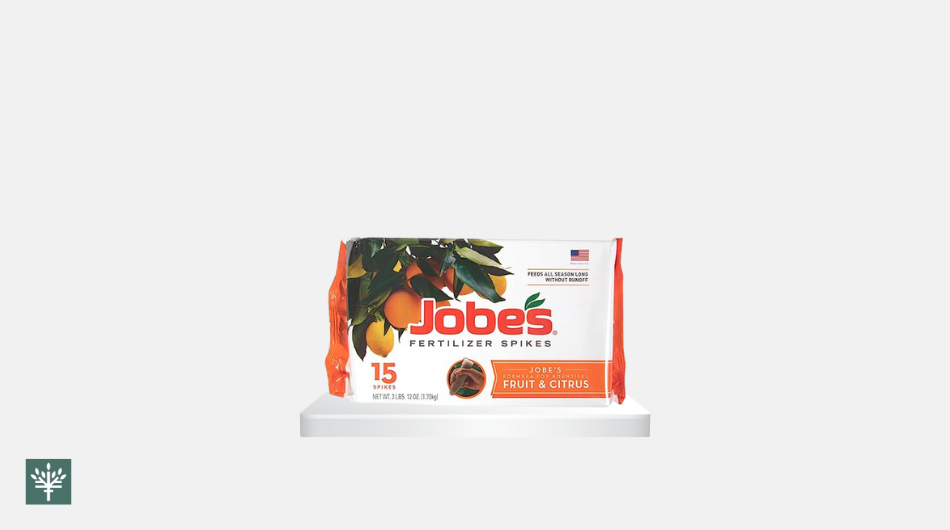
Product Specifications:
Type: Spikes
Weight/Volume: 6, 9, or 15 Spikes
NPK Ratio: 8-11-11
We try to always include some variety when we review fertilizers but we keep finding ourselves coming back to Jobe's products.
They really are excellent and these spikes are no exception. They are slow release, so that means they gradually dissolve and provide your tree with nutrients over time.
All you need to do is hammer them in around the drip line of your tree and they'll be happy all season.
Each spike comes pre-measured with the ideal fertilizer formula for your apple tree.
The 8-11-11 NPK Ratio covers everything you need and more.
The heavier potassium and phosphorous do wonders for improving the bloom of your apple trees. And more blooms means more fruit.
PROS
- Set it and forget it
- Ease of use
- Slow release
- Promotes fruit production
CONS
- Requires hammering
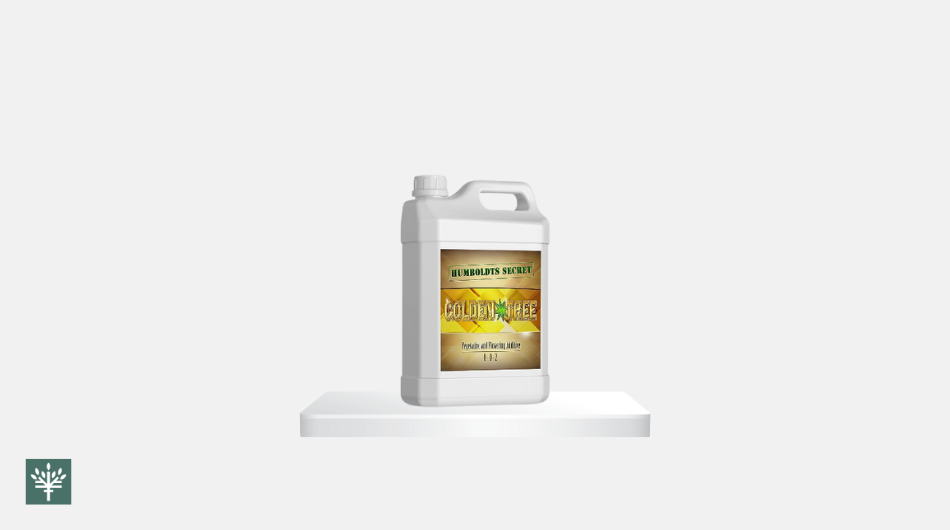
Product Specifications:
Type: Water Soluble Granules
Weight/Volume: 18 Ounces
NPK Ratio: 0-0-2
The Humboldt Secret Golden Tee is a unique fertilizer that focuses more on the tree's secondary nutrients than the standard NPK but is also critical for fruit production.
In fact, the NPK ratio is 0-0-2 but that doesn't mean it isn't useful.
It's loaded with other trace minerals your tree might need for tree growth (which you will know if you are soil testing).
Nonetheless, it does have some potassium which is good for boosting the tree's over health.
The other trace minerals, and carbs, will increase the quality of your soil which means the tree's uptake of natural ingredients will improve.
That also includes maximizing sunlight, rain, air and more.
PROS
- Promotes soil health
- Encourages tree health
CONS
- No nitrogen or phosphorous
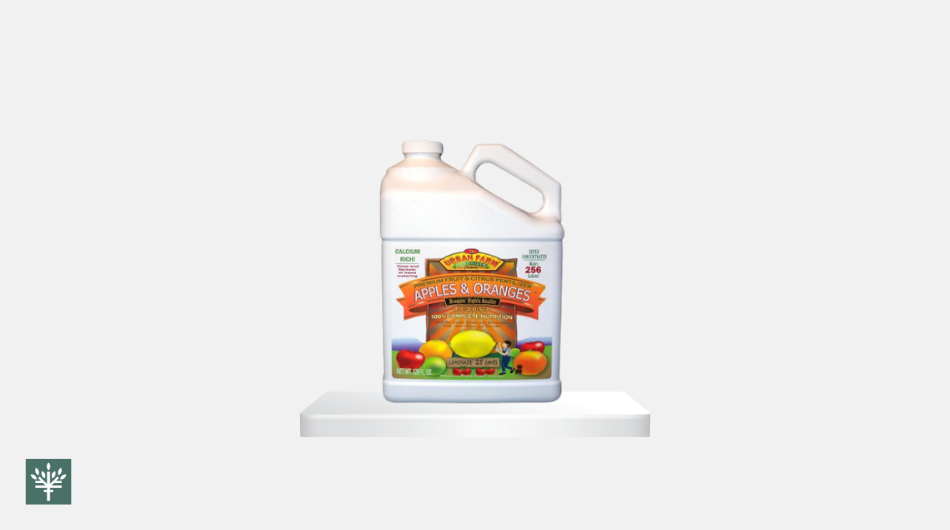
Product Specifications:
Type: Liquid
Weight/Volume: 1 Gallon
NPK Ratio: 4.5-2-4.2
The Urban Farm Apples and Oranges Liquid fertilizer is the best liquid fertilizer for apple trees.
It comes concentrated, so you'll need to mix it before use, but you can get 256 gallons of mix just from this one bottle. That's pretty crazy.
Liquid fertilizers are great for quick boosts of nutrients to improve any present nutrient deficiencies.
It's also cool because it comes with many organic ingredients such as mycorrhizae, humic acid, kelp, enzymes, and minerals.
It comes with a hose-end sprayer for easy hand watering but you can also plug it right into a drip system or drip line for easy fertilizing. Nothing wrong with that.
PROS
- 256 gallons when mixed
- Organic fertilizer
- Great for backyard gardeners
CONS
- Requires mixing before use
Product Specifications:
Type: Granular
Weight/Volume: 4-pounds
NPK Ratio: 6-3-2
In our opinion, the Espoma Organic 6-3-2 is the best organic fertilizer for apple trees.
This apple tree fertilizer comes with an NPK Ratio of 6-3-2, applied twice yearly.
Normally, you don't need to fertilize apple trees more than one time in the spring, so pay attention to the health of your tree to determine if you need to fertilize in the fall.
The Espoma brand is known for being quality. Espoma not only gives a health dose of NPK but also supports your tree with calcium.
Calcium is important for strengthening the fruit cells of the fruit which will extend their shelf life.
Just sprinkle it around the base of your apple trees if they are small, or rake it into the ground around larger apple trees.
PROS
- Organic
- Added microbes
- Pet and human safe
CONS
- Poor Scent
Sweet New Earth Top Pick for Best Apple Tree Fertilizer
In our opinion, the best fertilizer for apple trees is Jobe's Fruit & Nut Tree Organic fertilizer.
We love organic fertilizers and Jobe's always delivers high-quality, and dependable fertilizer for not just apple trees but fertilizer for citrus trees, fertilizer for palm trees and more.
You name it, and they got it.
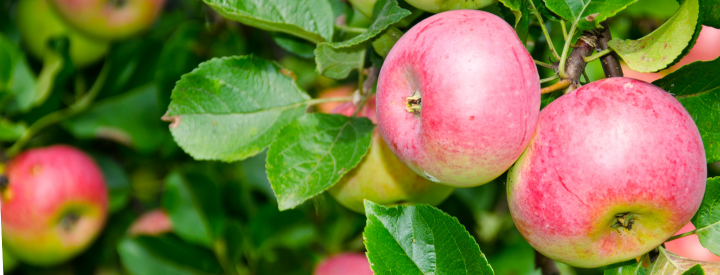
How We Chose the Best Fertilizer for Apple Trees
We chose the best fertilizer for apple trees based on:
- NPK Ratio
- Nutrition levels
- Application method
- Whether or not the fertilizer was inorganic or organic.
There are some other things you need to consider, too, like testing your soil, when to use the fertilizer, and above all, do you need to use fertilizer at all.
We cover everything you need and more below.
NPK Ratio & Secondary Nutrients For Fertilizing Apple Trees
The classic NPK Ratio. You'll see this in just about every article on fertilizers. That's because it's pretty essential.
But what is the difference between 6-3-4, or 10-10-10, or 20-3-19? Well, we'll explain it to you.
The NPK ratio is the ratio of the three most important nutrients the tree needs: Nitrogen (N), phosphorus (P) and potassium (K).
The number you see on the bag, like 10-10-10, is exactly that: 10% nitrogen, 10% phosphorus, and 10% potassium.
If you had a 100-pound bag of fertilizer, that would mean 10 pounds of nitrogen, 10 pounds of phosphorous, and 10 pounds of potassium. But what is the importance of each nutrient?
Nitrogen
Nitrogen is the first number on the NPK Ratio. It's important for every fertilizer and for every apple tree because it boosts both branch and green leaf growth.
Phosphorous
Phosphorous is the second number on the NPK Ratio, and its role is to promote healthy growth in the roots.
Strong roots are critical for apple trees to grow healthy and provide delicious apples.
Also, phosphorous will help during harvest season because it helps the tree produce a huge harvest.
Potassium
Potassium is the third and final number on the NPK Ratio. It's the backbone nutrient the tree needs, boosting the overall health of the tree.
With enough potassium, the tree can resist things like drought or other rough weather because it maximizes its ability to absorb nutrients.
Application Method
There are three major application methods for applying fertilizer to the ground. They are:
- Liquid
- Granular Fertilizer
- Spikes
Liquid
Liquid fertilizers are great for quick nutrition hitters that can boost your tree and alleviate nutrient deficiencies.
They come in two options: ready-to-use or concentrated liquid. If it's ready to use, spray it on the apple tree foliage. Easy Peasy.
Liquid concentrate will need to be diluted prior to use so be sure to read the instructions on the back of the bottle.
Granular Fertilizer
Granular fertilizer is what most people think of when they think of fertilizers: that sandy stuff you spread over the lawn.
When it comes to apple trees, it's the same. Spread the required amount of fertilizer around the apple tree using a cup or drop spreader if you do more than one tree.
If you have water-soluble granules, the granules usually come in a hose end. The hose end attaches to the end of the hose and it will dilute and disperse the fertilizer as you spray out over the apple trees.
Spikes
Spikes are a favorite among growers, and for good reason. They are simple, effective, and easy to use.
You just take the spikes and drive them into the ground surrounding your apple tree's trunk; over time, they release nutrients into the ground.
They work by dissolving slowly over time, gradually releasing primary and secondary nutrients absorbed by the apple tree's roots.
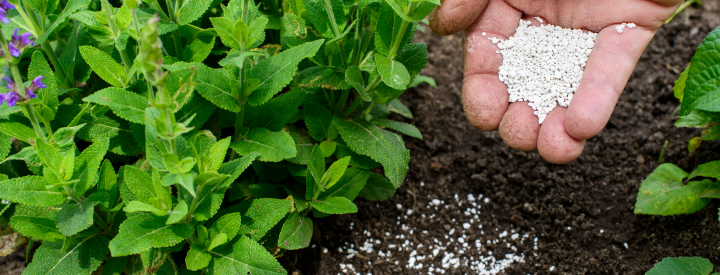
Inorganic vs Organic Fertilizers
When it comes to growing apple trees, you can use inorganic fertilizer or organic fertilizer. We cover the pros and cons of each.
Organic
Organic fertilizers are growers' favorites because they avoid using harsh chemicals.
Organic fertilizers use natural ingredients like blood meal, fish meal, or chicken manure.
We like organic fertilizers because they help protect the environment and we know the chemicals aren't getting into the apples.
Of course, we understand that using organic fertilizer at scale isn't feasible for some commercial growers.
Commercial growers aren't be throwing down coffee grounds at scale in apple orchards - no, they'll be using commercial fertilizer.
That being said, coffee grounds are a great apple tree fertilizer so if you want, you can go out and sprinkle some at the roots of the tree year-round.
Inorganic
Synthetic fertilizers are lab-made chemical fertilizers that can provide the same nutrition as organic fertilizers but with less cost.
Of course, inorganic fertilizers help aid nutrient deficiencies the same organic ones, but they sometimes come with a higher salt content that can leach into the soil and cause issues for the environment.
Quality & Volume
Some people think they can get away with buying a cheap fertilizer for their apple trees. We would encourage you not to do that.
You want a high-quality fertilizer that has high-quality ingredients so you can know a few months down the line that you'll have both a healthy apple tree, and delicious fruit to go with it.
Of course, there are some budget fertilizers out there that can get the job done. We aren't against saving money. Heck, you could even make your own fertilizer if you wanted.
But please, don't put some toxic waste into the earth around your tree hoping it will be healthy and happy in a few months.
Be sure to get the right volume fertilizer you need for your apple tree or apple trees. You don't want to get out there and start fertilizing apple trees when you realize 1) you don't have enough or 2) you don't have the right NPK ratio so you need to buy more.
Remember what we said above: if you get 100 pounds of fertilizer, with a 10-10-10 NPK, then you have 10 pounds of nitrogen phosphorus and potassium. Make sure that's enough for your needs.
Soil Test and pH Levels for Apple Tree
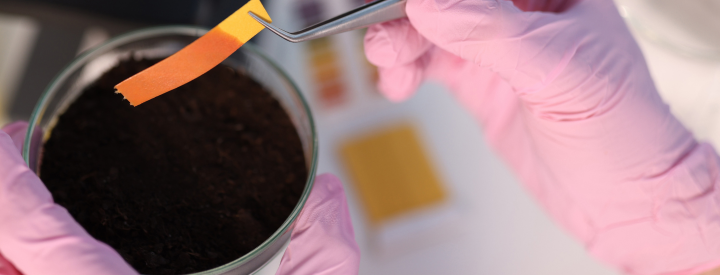
If you are serious about growing apple trees, you should have the soil tested.
If you get your soil tested, you eliminate all the guesswork fertilizing feels like, and you'll finally know how much fertilizer you truly need.
Some of the soil parameters you should be tracking are:
- Phosphorous
- Potassium
- Calcium
- Magnesium
- Boron
- Soil pH
If you use manure, compost or other waste materials to fertilize your apple trees, then you want perform these additional tests to keep track of toxicity levels:
- Copper
- Zinc
This is all pretty simple to do. Once you get your results of your soil sample back, you can plug them into an excel sheet.
Save the file and you officially have 'data' on the quality of your soil. Also, once you have the soil test results, you can begin to supplement the soil based on the need's of the tree[2].
Boron Deficiency
If your soil is lacking boron then. you should consider supplementing the apple trees with boron.
Do not do this if there is adequate boron in the soil otherwise you can harm the tree.
Calcium Deficiency
Calcium deficiencies are another one you gotta look out for. If the soil doesn't have enough calcium, your apple trees will start to have bitter pits.
If you find that you have a calcium deficiency, look into spraying the tree leaves with a calcium chloride sprayer throughout the summer.
When To Use Fertilizer for Apple Trees
Knowing when to use fertilizer for apple trees comes down to your soil, climate, age, and the fertilizer itself.
How Many Times Per Year Do You Fertilize Apple Trees?
You should fertilize your mature apple trees once per year. If your apple trees are over two years old, you only need to fertilize them once in the springtime.
Apple trees start bearing fruit in the early spring. When apple trees bear fruit, their nitrogen uptake increases, so applying a high nitrogen-based fertilizer once in the early spring is ideal.
For more specific guidelines, see below.
Do Apple Trees Need Fertilizer?
Apple trees need fertilizer to grow healthy. Apple trees, like all fruit trees, thrive with the best fruit tree fertilizer. If you haven't gotten your soil tested, there are some basic principles you can follow to make sure the apple trees are growing right:
- Young apple trees: Young trees should grow up to 1 foot per year. If they aren't. increase fertilizer in the following years by 50%. [1]
- Older than 4 years (mature apple trees): For less than 6 inches of tree growth, continue to fertilize the same as for young apple trees; If over 12 inches of growth apply only sul-pu-mag (do not use 10-10-10 or calcium nitrate). If you don't know what sul-pu-mag is, it's just another type of fertilizer that delivers suffer, potassium, and magnesium rather than the standard NPK.
- Transplants: We recommend fertilizing transplanted apple trees about three weeks after planting. Too much too soon can be detrimental to the tree but after three weeks you can apply 10-10-10 one to two feet around the base of the tree. Once you have established apple trees, you can resume normal fertilization.
FAQs

Carl Anderson is the main author of Sweet New Earth. You can learn more about him here.

